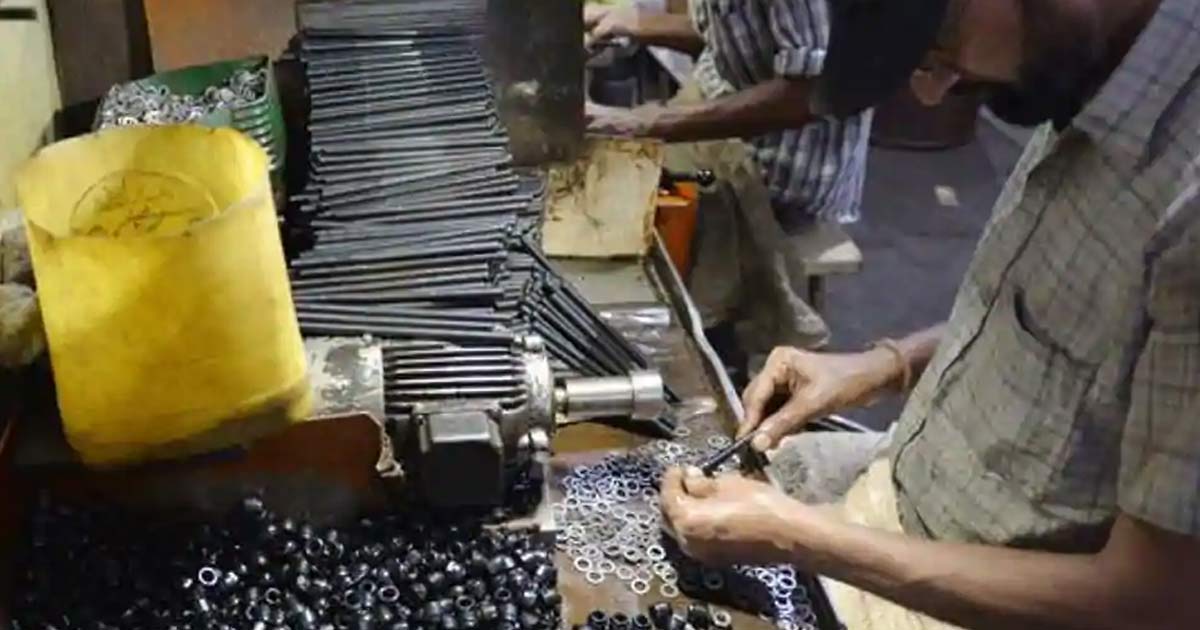It is estimated that over 60 lakh MSMEs may come out from the Goods and Services Tax (GST) net if the threshold limit for micro, small and medium enterprises (MSMEs) is raised to ₹75 lakh. In this regard, a panel led by Minister of State for Finance Shiv Pratap Shukla is going to meet on January 10 to get the recommendations finalized in this regard.
“A higher threshold may result in a GST revenue loss of around ₹5,500 crore,” a senior government official addressed BusinessLine.
On one side, as this would be proved to be a revenue loss to the treasury, but on the contrary, it would lift and release the complexities of various MSME’s and would bring down the compliance cost, which has continuously been a problem for the small businesses.
Finance Minister Arun Jaitley addressed and said that the recommendations of the panel would be taken up during the next 32nd meeting of the GST Council which is expected to take place by the third week of January. Currently, the threshold limit for mandatory registration under the GST is ₹20 lakh (₹10 lakh for some north-eastern and hilly states).
A total of 57,55,610 MSMEs were registered on the Udyog Aadhaar (UA) portal till December 13. According to the 73rd round of the National Sample Survey (NSS) conducted by ‘National Sample Survey Office, the Ministry of Statistics & Programme Implementation, during 2015-16, revealed that there are 633.88 lakh unincorporated non-agricultural MSMEs in the country. The investment made by them defines these units. The two sets of definitions are based on the fact that whether the unit produces goods or services.
Under the Goods category, Micro, Small and Medium units are defined as below:
- up to ₹25 lakh – micro
- ₹25 lakh to ₹5 crore – small, and
- ₹5-10 crore – medium
For the service sector the slabs are decided as:
- up to ₹10 lakh
- ₹10 lakh to ₹2 crore, and
- ₹2-5 crore
The Government feels that since July 1, 2017, when GST was introduced, MSMEs have been given many leverages and concessions, in spite of that, there is always a sense of dissatisfaction and a feel of a pinch in this particular section.
Manpreet Badal, the Finance Minister of Punjab, through a letter to the Finance Minister Arun Jaitley, said that the cost of compliance should never be higher than a specified threshold limit of the net cash GST liabilities or the average net profits.
Read Also: Goods and Services Tax Issues/Problems Seen Across India Till Now
“Personally, I feel, that the cost of compliance should not exceed 5 percent of the net cash liability for an MSME unit with a turnover up to ₹5 crore,” he said, if we take an example of a composition dealer with a turnover up to ₹1 crore, the cost of compliance should be less than ₹6,000 per annum. He further said that most dealers should be able to comply on their own without availing any external help.
Tax experts also agree on the fact that the compliance cost should be lower and the threshold should be raised.
AMRG & Associates Partner, Rajat Mohan laid emphasis on the idea of increasing the threshold limit and said that the MSME sector is a pillar of the Indian economy, contributing about 45 percent to manufacturing output and about 40 percent of the total exports. Since last one year, the sector has been continuously facing challenges in terms of Compliance. They are ought to pay high compliance cost imposed by the rigors of the GST.
“A low threshold of ₹20 lakh is virtually dragging the MSMEs out of their comfort zone and harnessing them for an unknown GST battle without realizing that the weight of the harness is sufficient enough to suffocate them,” he said.










